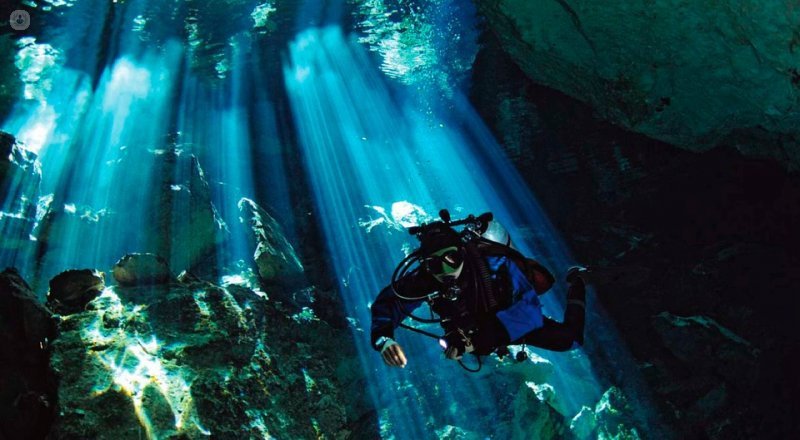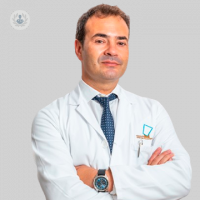What are the most common pathologies that can undergo a diver?
Written by: The most common diseases encountered in diving are derived from the compensation of pressures both in the ear and sinuses. It is, also called barotrauma.
The most common diseases encountered in diving are derived from the compensation of pressures both in the ear and sinuses. It is, also called barotrauma.
How can you prevent the effects?
It is essential that the diver knows some basic anatomical and physiological concepts related to their business. You also need proper training on pressure equalization techniques in the ears, and know the warning signs to prevent further damage. It should identify acute situations like colds or allergic crisis triggers such problems.
How barotraumas treated?
Squeezes manifest with various symptoms such as feeling otic blockage, hearing loss, dizziness, facial pain, among others. The assessment of a specialist is necessary Otolaryngology instructed in these conditions, and familiar with the practice of this activity. These features enable it to make a proper diagnosis, the subsequent therapeutic approach and specific recommendations for each patient, depending on the type of dive you make.
What ENT diseases are contraindicated with scuba diving?
This is a complex issue that generally should be evaluated in each patient according to their pathology, the kind that makes diving (recreational, professional, apnea, ...) and what are your expectations in this regard. Some situations absolutely contraindicated diving, but also many others are relative. These are appreciated based on different factors and treatment may be optional. It is therefore necessary that the otolaryngologist is accustomed to these patients and their details.
What a diver periodic reviews should be done?
The revisions and their frequency depends on the type of diving is practiced. The most common are:
- In professional diving, it is imperative a specific medical examination for scuba diving.
- In diving leisure, a basic evaluation is recommended before starting practice. Especially in patients with a history of problems in situations of pressure variations, as flights, or with inadequate nasal breathing.
An assessment by the otolaryngologist is also required whenever there is a problem after a dive, although not relevant to avoid serious consequences.


